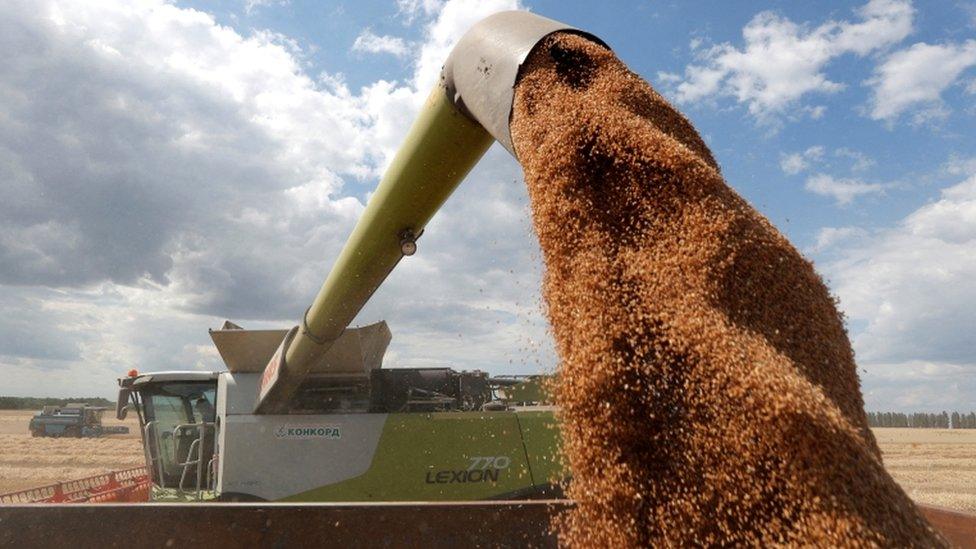Ukraine round-up: Escape from besieged city and refugee camp in Wales
- Published
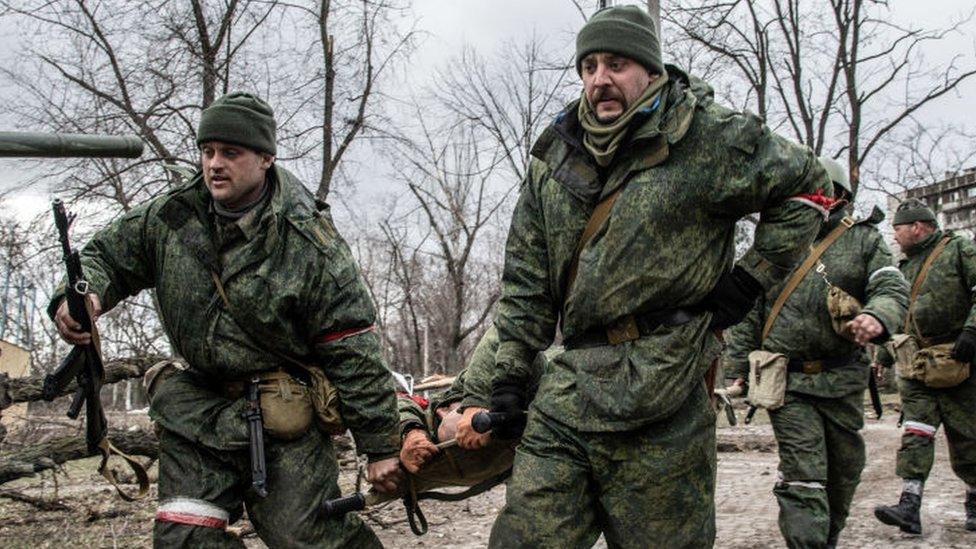
UK intelligence says the Donetsk militia could have lost 55% of its forces
An apparent drone strike has suspended operations at an oil refinery in Russia near the border with Ukraine.
A statement from the facility in the Rostov region says the plant was hit by two strikes.
Video footage on social media appears to show the moment of one of the strikes, causing plumes of black smoke. Local media say no-one was injured and Ukraine has not commented on the incident.
Inside Ukraine, the Russian-backed separatist militia in the Donetsk region could have lost more than half of its fighting force, according to British intelligence. The separatist forces were heavily involved in the battle for Mariupol.
Last week, officials in the so-called Donetsk People's Republic said 2,128 of their forces had been killed and 8,897 wounded since the start of the year.
Read more about pro-Russian separatist losses here.
Separatists in the eastern Donetsk and Luhansk regions of Ukraine, which together make up the Donbas, set up unrecognised pro-Russian statelets in 2014 after the annexation of Crimea.
This piece explains why the region is such a priority for Vladimir Putin, who falsely accuses Ukraine of committing genocide against Russian speakers there.

Escape from Lysychansk
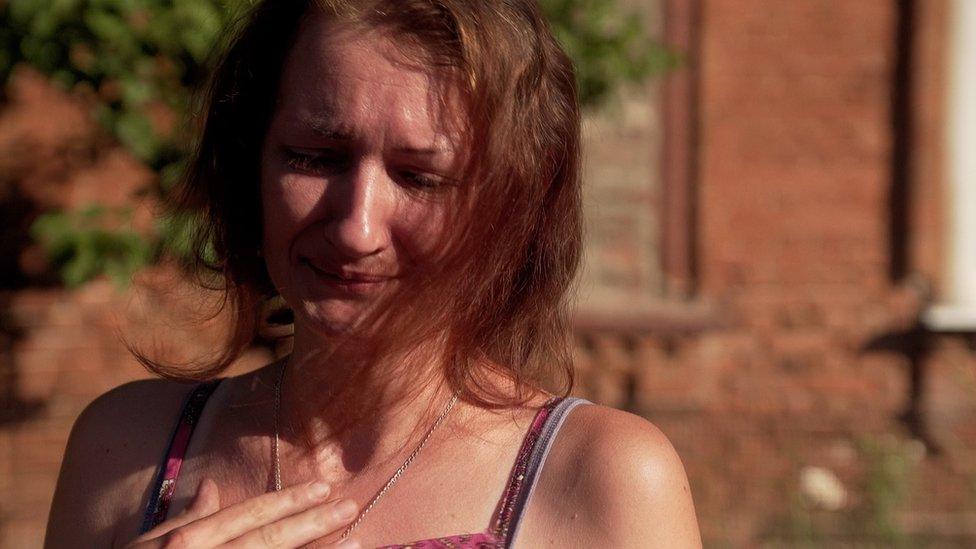
Katya: "There will be no happy ending here"
Lysychansk and its twin city Severodonetsk are the current focus of Russia's bombardment in Ukraine.
Time is running out for civilians to escape, as Russian forces attempt to encircle the cities.
Lysychansk resident Katya knew she had to leave when a shell landed in her garden and shrapnel pierced her front door.
"Now I realise there will be no happy ending here. We lost all hope of being able to save ourselves on our own," she told the BBC's Orla Guerin, who has been inside the city with volunteers working to evacuate residents.

Coming to a standstill in Kaliningrad
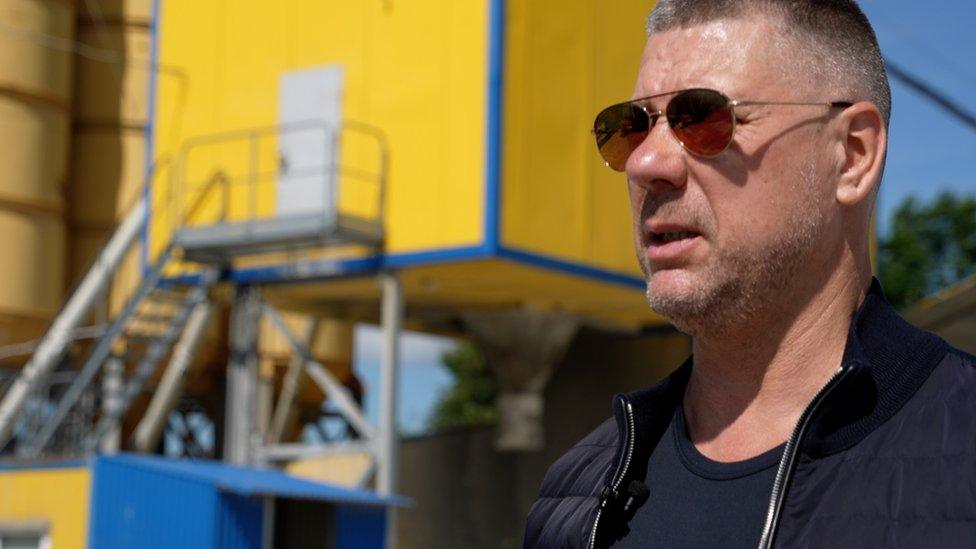
Igor Pleshkov says his concrete firm hasn't produced a single cubic metre so far this month
Igor Pleshkov's concrete business in Kaliningrad has pretty much come to a halt after Lithuania banned the rail transfer of some goods to the Russian territory of Kaliningrad.
When the Soviet Union collapsed in 1991, Kaliningrad suddenly found itself a Russian exclave in the heart of Europe. It's sandwiched between Lithuania and Poland, both members of the European Union and Nato.
"We produce commercial concrete, iron concrete and paving stones. We first experienced a shortage of cement back in March, after Europe imposed sanctions on Russian banks," he told the BBC's Steve Rosenberg.
"Trains with cement were being turned back at the Lithuanian border, because the rolling stock was owned by leasing companies who were under sanctions.
"As of June, we haven't produced a single cubic metre."

Europe told to prepare for Russia turning off gas
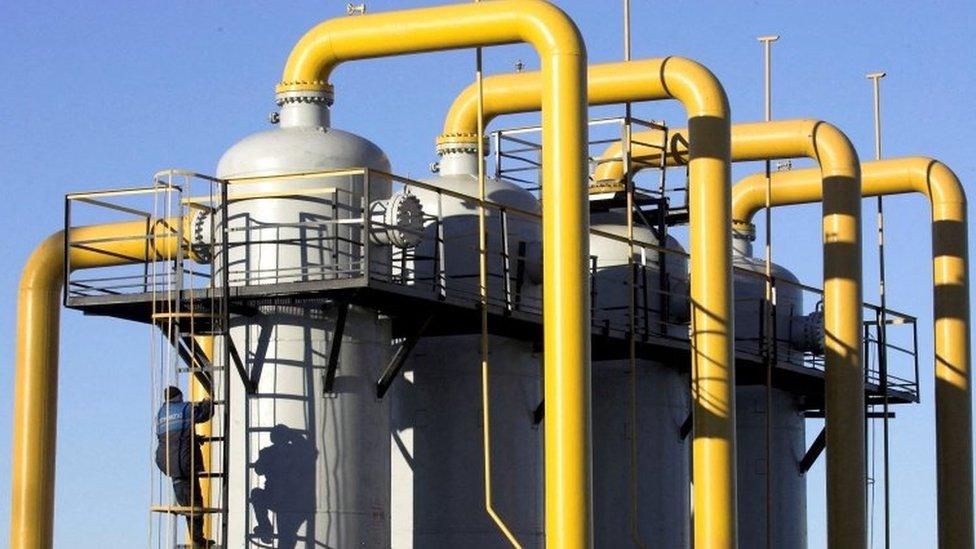
European countries say they have received less Russian gas than expected recently
The head of the International Energy Agency has warned that Russia may stop supplying gas to Europe this winter.
Fatih Birol says he believes a complete shutdown is not the most likely scenario but that Europe needs to work on contingency plans just in case.
In recent weeks, several European countries said they had received significantly less Russian gas than they expected.
Russian officials deny it's deliberate and have blamed technical issues.

Ukraine outflanked by Russia in Africa
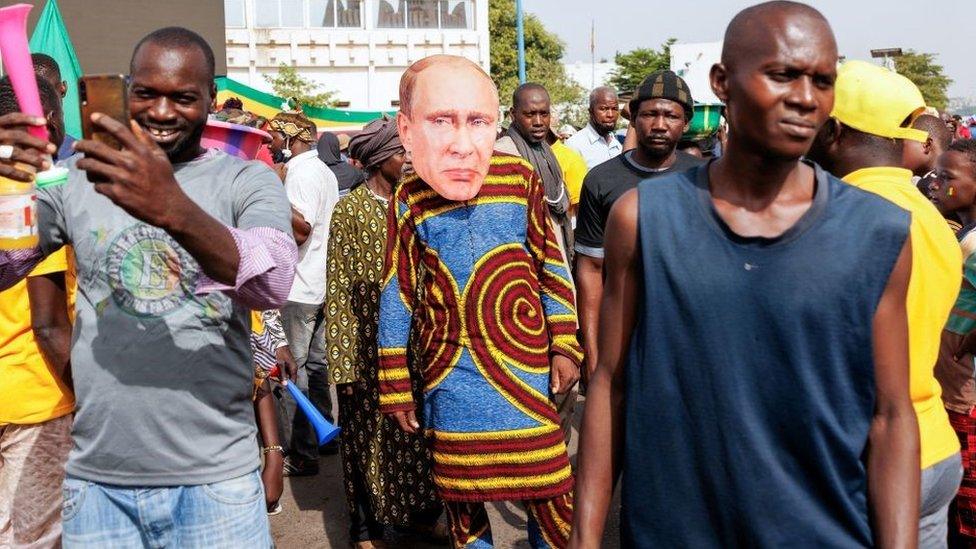
When Ukrainian President Volodymyr Zelensky addressed the African Union recently, only four heads of state from the continent listened in.
The low turnout is a sign of Ukraine's struggle for influence in Africa, where it has a far smaller diplomatic presence than its larger neighbour, Russia.
Added to that, many African countries simply can't afford to alienate Russia by joining Western sanctions at a time when food prices are soaring, due in part to Russia's blockade of Ukrainian ports.
Africa expert Paul Melly explains why Africa's response to the war in Ukraine is so different to the West's.

Welsh camp for 200 refugees
Marta Burak is one of more than 220 Ukrainian refugees living at a Welsh government centre
The UN says more than 13 million Ukrainians have fled their homes since the war began, with over 5 million of them leaving the country.
Around 60,000 have travelled to the UK, nearly all of whom are living in private households.
But for more than 220 Ukrainians who are now in Wales, the experience has been somewhat different. They are living together at a specialist centre which offers a place to stay, food, education and advice.
It was set up by a youth organisation with support from the Welsh government.
Hywel Griffith spoke with some of the families there about their experience.

Related topics
- Published4 July 2022
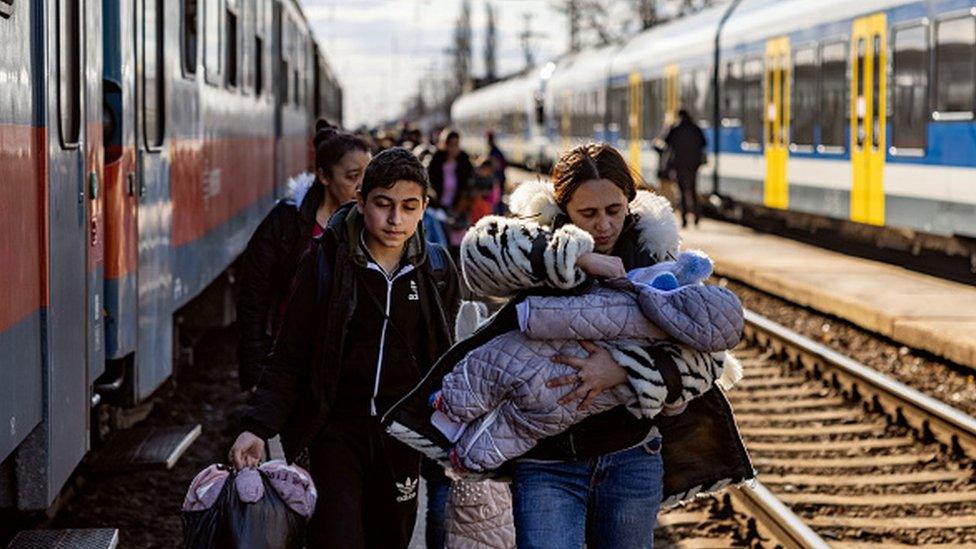
- Published20 June 2022
